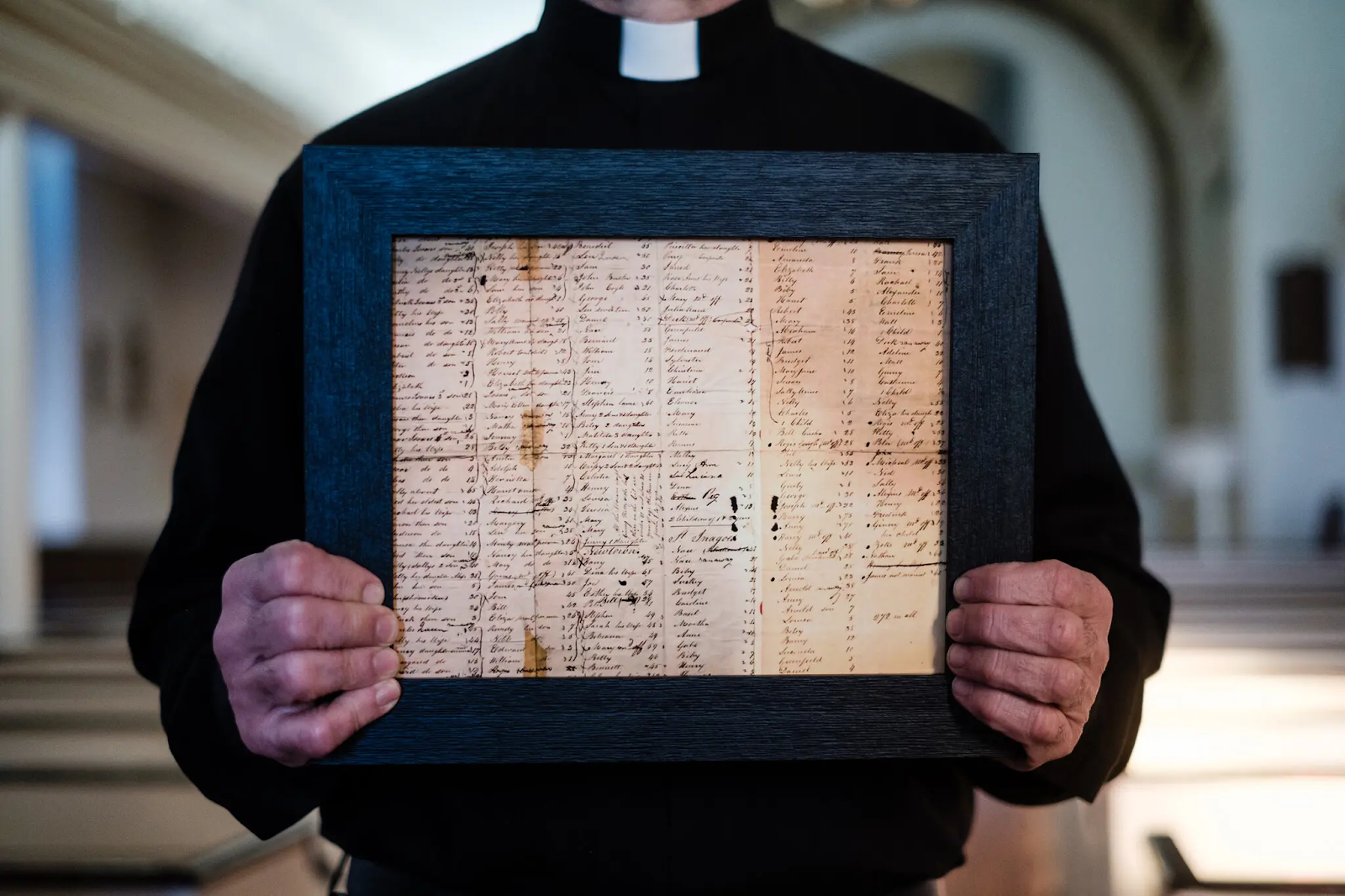The Slave Sale That Saved — and Stained — Georgetown
“The 272,” by Rachel L. Swarns, recounts the decision by the university’s early leaders to sell nearly 300 people enslaved on Jesuit-owned plantations in Maryland in 1838.
THE 272: The Families Who Were Enslaved and Sold to Build the American Catholic Church, by Rachel L. Swarns
During the War of 1812, a large extended family of Mahoneys lived and labored as enslaved people on several plantations in southern Maryland. They were descendants of a Black woman named Ann Joice, who had arrived from England in approximately 1676 as an indentured servant. For years she served one of Maryland’s richest men, Charles Calvert, as a domestic in his manor house. In 1684 she was transferred to Calvert’s cousin Henry Darnall, a wealthy Catholic, who promptly burned her indenture papers, rendering her a slave for life.
In the midst of the war, Thomas Mulledy and William McSherry, two young Virginians, were students at the small Georgetown College (now Georgetown University) in Washington, D.C., the country’s first Catholic institution of higher learning, then little more than two decades old. Sons of Irish immigrants who had taken up slaveholding, the pair joined the Society of Jesus, an order of Catholic priests founded in 1540 and known the world over for their devotion to education and the creation of schools and colleges. The Jesuits grasped the path to power and wealth in antebellum Maryland, enslaving hundreds of people and operating several wheat and tobacco plantations in the state.
“The 272,” Rachel L. Swarns’s deeply researched and revelatory new book, is the story of the remarkable Mahoney clan and how their lives, nearly a century and a half after Ann Joice’s, intersected with those of Mulledy, McSherry and the Jesuits in one of American slavery’s most withering tragedies. “The 272” is a fascinating meditation on the meaning of slavery and of people converted to property and commodities — assets of wealth and objects of sale. It’s a book that journeys to slavery’s heart of darkness: to the separation of families, the terror of being sold into the vast unknown and of bodies transformed into profits and investments. But it is also the moving human story of some of the people who endured and survived this ordeal, and who have long awaited rediscovery.

No comments:
Post a Comment